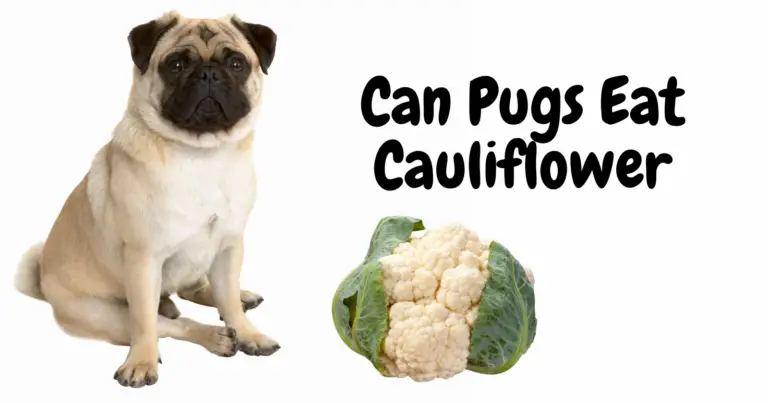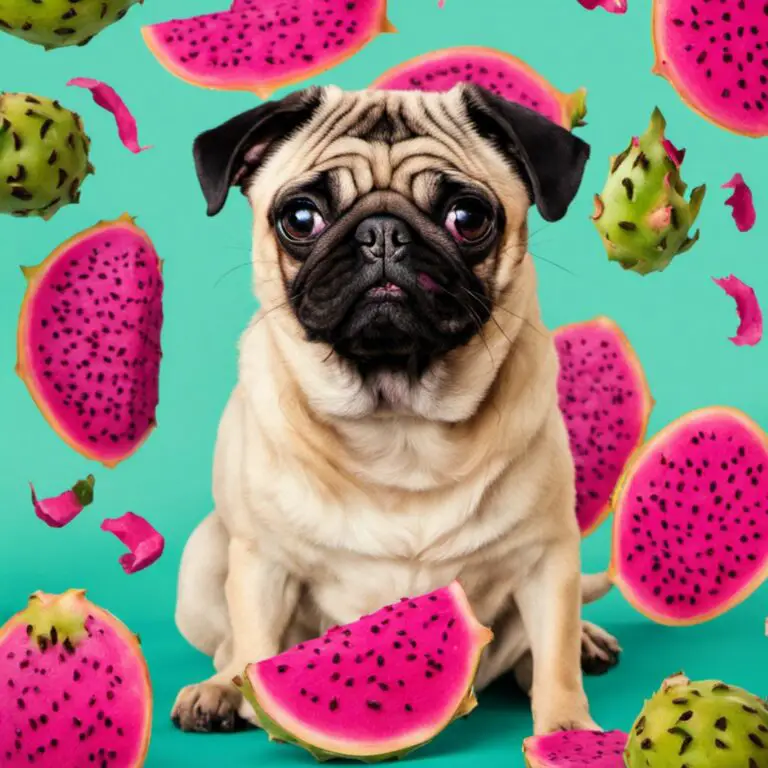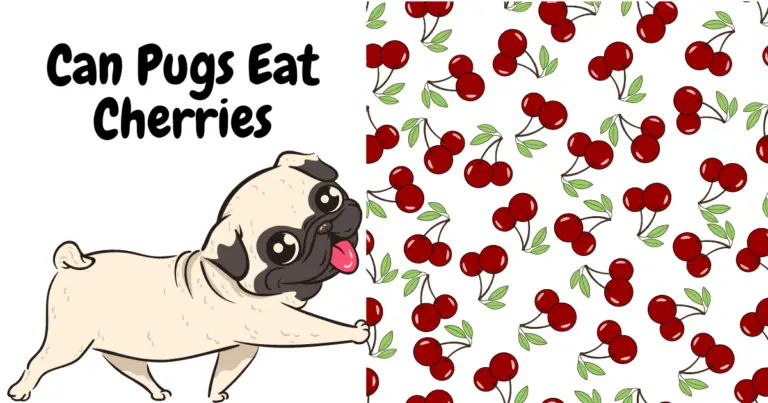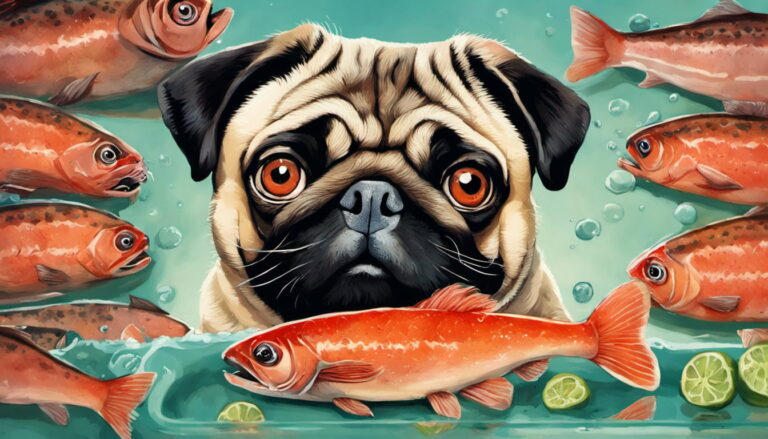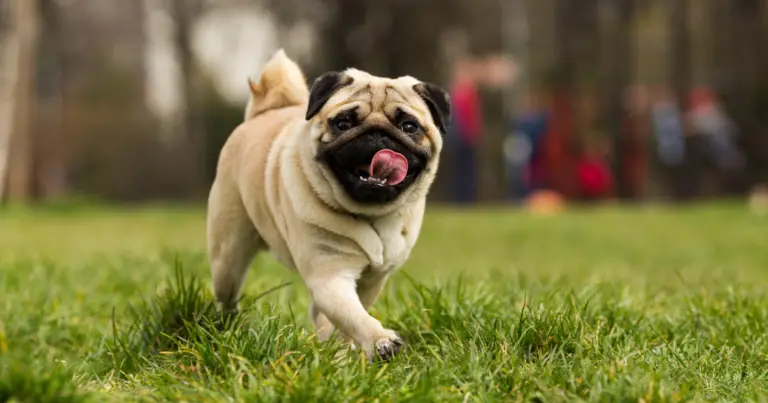Can Pugs Eat Oranges? A Clear and Knowledgeable Guide
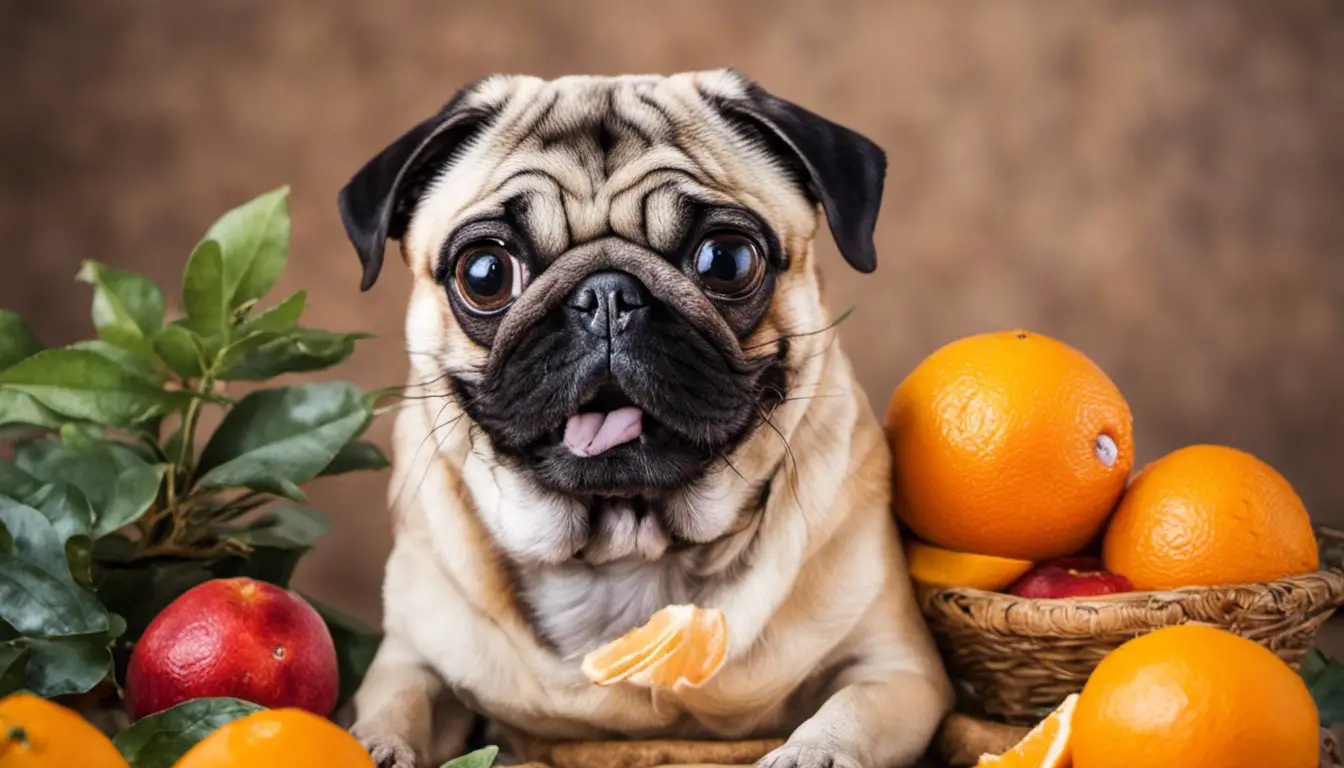
As a pug owner, you might wonder if sharing a juicy orange with your furry friend is okay. Can Pugs Eat Oranges? Pugs, like all dogs, need a balanced diet to maintain optimal health, so it’s natural to consider incorporating fruit into their meals. The good news is that pugs can indeed eat oranges, but there are some important factors to remember when offering your pet this delicious treat.

Oranges are non-toxic and packed with essential nutrients, such as vitamin C, potassium, and fiber. However, their high sugar and acid content means that they should be consumed in moderation. To serve oranges to your pug, only offer the fleshy part of the fruit, and make sure to remove the seeds and peel, which can be difficult for dogs to digest source.
Being mindful of portion size and preparation will allow your pug to enjoy the benefits of oranges without compromising their overall health. So go ahead, share a slice or two with your pup, and delight in watching them savor this juicy and nutritious treat.
Contents
Table of Contents
Understanding Pugs and Their Diet
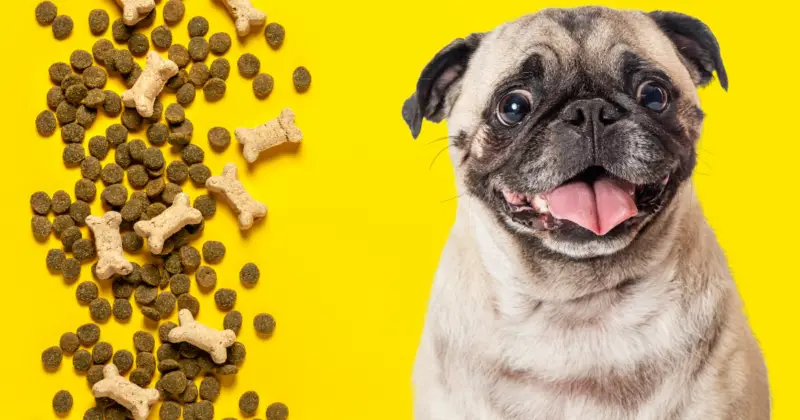
As a pug owner, it’s important to understand your pug’s nutritional needs to ensure they stay healthy and happy. Like all dogs, pugs require a balanced diet consisting of protein, fat, carbohydrates, and certain vitamins and minerals.
Get The Free Food Eating Guide That Keeps My Pug Happy and Playful Even at 13 Years Old
100% Beginner Friendly & Lists Real Foods Your Pug Can Actually Eat!

A key component of a pug’s diet is protein, which helps build and maintain their muscles and support their overall growth and development. A pug’s main source of protein should come from high-quality meats like chicken, beef, and fish. Remember that pugs tend to be overweight, so it’s crucial to monitor their calorie intake and avoid overfeeding.
Fats are also essential for pugs, providing energy and promoting healthy skin and coat. Opt for healthy fats, such as omega-3 fatty acids found in fish and flaxseeds. Remember, moderation is vital when it comes to fat intake since excessive consumption can lead to obesity and related health issues.
In addition to proteins and fats, your pug’s diet should include a variety of vegetables to provide necessary vitamins, minerals, and fiber. Leafy greens like spinach and kale, as well as carrots and sweet potatoes, can be wonderful additions to their meals. However, be cautious with cruciferous vegetables like broccoli and cauliflower, as they can cause gas and bloating in some dogs.
Apart from their regular meals, pugs enjoy snacks and treats. It’s okay to spoil them occasionally, but remember to opt for healthy options such as fruits and vegetables in small amounts. As an example, pugs can safely eat oranges when given in moderation and without peel or seeds.
Providing your pug with a well-balanced diet consisting of proteins, fats, vegetables, and occasional healthy snacks can ensure their nutritional needs are met and support their overall well-being.
Can Pugs Eat Oranges?

Yes, pugs can eat oranges, but there are some important guidelines to follow for your pug’s health and safety. As a responsible pug owner, it’s crucial to be aware of the dos and don’ts when it comes to feeding oranges to your beloved pet.
When giving your pug an orange, make sure to remove the peel and seeds first. The peel can be difficult for dogs to digest and may cause gastrointestinal issues, while the seeds may pose a choking hazard. Feeding them only the fleshy part of the fruit is recommended and in moderation1.
Oranges offer some nutritional benefits for your pug. They are rich in vitamin C and can help boost your dog’s immune system. However, always consult with your veterinarian before introducing new foods to your pug’s diet to ensure your pet’s safety and well-being of your pet2.
Feeding your pug oranges in excessive amounts could lead to digestive issues, as too much sugar from the fruit may upset their stomach3. Maintaining a balanced diet for your pug is important, and limiting the number of oranges they consume is essential.
In conclusion, be sure to give your pug the fleshy part of the orange without the peel and seeds, and avoid overfeeding them with this fruit. Keep the servings in moderation, and always consult your veterinarian when introducing new foods to your pug’s diet4.
Benefits of Oranges for Pugs

Oranges can provide several health benefits for your pug when fed in moderation. These citrus fruits are packed with essential nutrients and antioxidants that can help promote your pug’s overall health.
Firstly, oranges are a great vitamin C source, which is vital in supporting your pug’s immune system. It helps combat infections and keeps your pug healthy. Moreover, vitamin C is essential for older pugs, as their ability to produce it naturally decreases with age.
In addition to vitamin C, oranges also contain plenty of fiber and potassium. Fiber helps maintain your pug’s digestive health, while potassium supports muscular function and ensures proper hydration. With proper hydration, you can prevent potential health issues related to dehydration in your pug.
Another notable benefit of oranges is their antioxidant content. Antioxidants help neutralize free radicals in your pug’s body, reducing the risk of diseases and contributing to healthy aging. These antioxidants also have anti-inflammatory properties, which can help reduce inflammation in your pug’s body.
Although not as prominent as vitamin C, oranges provide small amounts of vitamin A, which is essential for maintaining healthy skin, coat, and vision in your pug. Moreover, the natural sugars in oranges give them a sweet taste, making them an appealing occasional treat.
Just remember to always feed oranges to your pug in moderation, as excessive consumption can lead to digestive issues due to their high sugar and acid content. Peel the fruit and remove seeds before feeding to ensure your pug’s safety and enjoyment.
By including oranges as an occasional treat in your pug’s diet, you can provide a variety of essential nutrients and health benefits that contribute to their overall well-being.
Potential Risks and Hazards

When feeding oranges to your pug, knowing the potential risks and hazards associated with this fruit is important.
Firstly, oranges can be high in sugar, and consuming too much sugar can lead to health issues for your pug, such as obesity and dental problems. As a result, it is essential to feed your pug oranges in moderation and only as an occasional treat.
Secondly, the peel and seeds of the orange can be hazardous to your pug’s health. The peel contains oils that can upset a pug’s stomach, which might result in vomiting and diarrhea. Additionally, the peel and seeds pose a choking risk and could obstruct your pug’s digestive tract if not removed before feeding.
As oranges are acidic, consuming excessive amounts may cause gastrointestinal issues or constipation. Therefore, ensuring that your pug does not eat too many oranges is crucial.
In summary, while oranges can be a tasty treat for your pug, it is essential to exercise caution and feed them in moderation. Be sure to remove the peel and seeds before feeding, and monitor your pug for any signs of gastrointestinal distress or discomfort after consumption. By considering these potential risks and hazards, you can enjoy sharing this delicious fruit with your pug responsibly.
How Oranges Impact Pug’s Digestive System
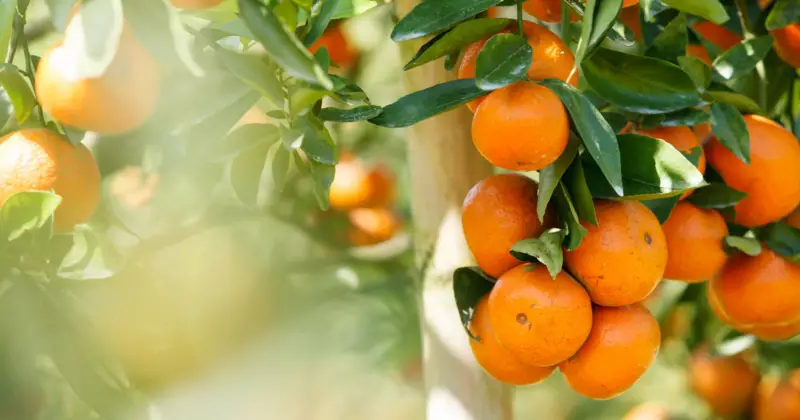
When you give your pug oranges, it’s essential to understand the impact on their digestive system. Oranges contain fiber, which can be beneficial for digestion in small amounts. However, too much fiber from oranges may lead to issues such as diarrhea or constipation in your pug.
Be cautious with the orange peel, as it can create obstructions in your pug’s digestive tract. The high molecular weight of the peel makes it difficult for them to digest. To avoid potential problems, always remove the peel and seeds before feeding oranges to your pug.
If your pug consumes too many oranges, it might lead to digestive problems due to the high sugar content in the fruit. Signs of digestive distress in pugs may include vomiting, diarrhea, or constipation. To prevent these issues, feed oranges to your pug in moderation as an occasional treat.
In conclusion, oranges can be a healthy addition to your pug’s diet if given in small amounts and without the peel. Monitor your pug’s reaction to this new treat and adjust accordingly to maintain a well-balanced, healthy diet for your furry companion.
Can Pugs Eat Oranges?
Symptoms of Orange Overconsumption
Feeding your pug oranges in moderation can provide certain health benefits, but overconsumption can lead to various symptoms and discomfort. It’s important to recognize the signs of orange overconsumption in your pet and take action to manage it.
When your pug consumes too many oranges, one common symptom is diarrhea. The high fiber content in oranges may cause loose stools and frequent bowel movements. This can also lead to dehydration, which is a serious concern for your pug’s overall health. Make sure your pug has access to fresh water to prevent dehydration.
If your pug is experiencing vomiting after having oranges, this might be a sign of overconsumption or intolerance to the fruit. Keep an eye on your pet and monitor their reactions to oranges. Nausea can be another indication of consuming too many oranges; this may result in a loss of appetite and a decrease in your pug’s energy levels.
Overconsumption of oranges can also cause constipation in some cases, as the high fiber content might lead to an excessive build-up in the digestive system. Keep track of your pug’s bowel movements and adjust their diet accordingly.
While oranges are low in calories, excessive intake might still lead to weight gain if not balanced by an appropriate diet and regular exercise. Be mindful of your pug’s overall caloric intake and ensure they remain active to maintain a healthy weight.
Remember, limiting the number of oranges your pug consumes is crucial to avoid these symptoms. A small portion as an occasional treat can provide some health benefits without causing any harm to your beloved pet.
Safe and Unsafe Parts of Oranges for Pugs
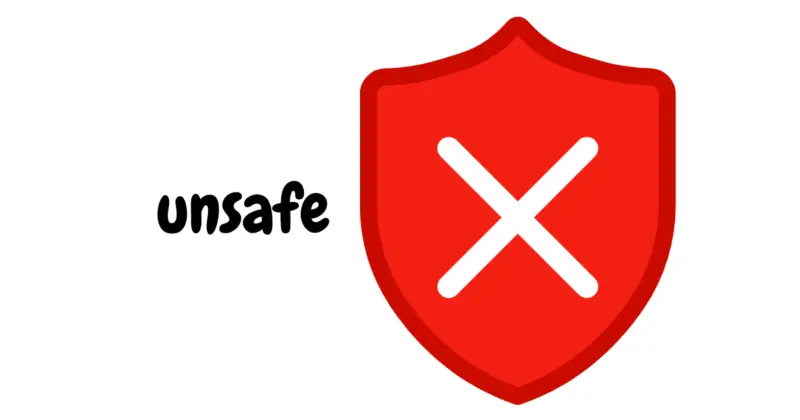
When feeding your pug oranges, knowing which parts of the fruit are safe for your pet and which parts should be avoided is essential. The fleshy segments of the orange are the safest and most nutritious part for your pug. Oranges are rich in vitamin C, potassium, and fiber and are non-toxic for dogs when consumed in moderation.
Be cautious with the following parts of oranges for your pug:
- Seeds: Always remove the seeds from the orange before feeding it to your pug. Seeds can be a choking hazard and may cause digestive issues if consumed.
- Peel: Do not feed your pug the orange peel. It can be difficult to digest and may cause gastrointestinal upset.
- Pith: The white film found within the fleshy part of the orange should also be removed. Although it’s not toxic, it can be tough for your pug to digest and may cause digestive problems.
Some pug owners might wonder if other parts of the orange tree, such as the leaves, can be fed to their pets. It’s important to note that pugs should only consume the fleshy part of the orange, and all other parts, including the leaves, should be avoided.
To prepare an orange for your pug, simply peel the fruit, remove the seeds, and separate the segments. Keep the serving size small and remember to moderate the intake, as too many oranges can cause digestive issues for your pup.
Serving Oranges To Your Pug

When giving oranges to your pug, it’s important to remember that they should be treated as a delicious treat and not a regular part of their diet. Always feed your pug oranges in moderation to avoid any digestive issues due to their high sugar and acid content.
To serve oranges to your pug, focus on the fleshy part of the fruit. This is the safest and most beneficial part for them to consume. Make sure to remove the seeds, as they can be difficult for your pug to digest and may pose a choking hazard. Additionally, avoid feeding your pug the rind or white film (pith) found in the orange, as they can also be hard for them to digest. Peeling the orange and removing these parts ensures your pug will enjoy a tasty treat without any complications.
You can try serving frozen orange slices or chunks to your pug for a refreshing and fun variation. This can be especially enjoyable on a hot day or when your pug needs a little extra hydration. Just remember to moderate the amount and frequency of this treatment to maintain your pug’s overall health and well-being.
By following these guidelines, you’ll be able to provide your pug with a tasty, safe, and nutritious treat they can enjoy occasionally.
Alternative Fruits and Snacks for Pugs
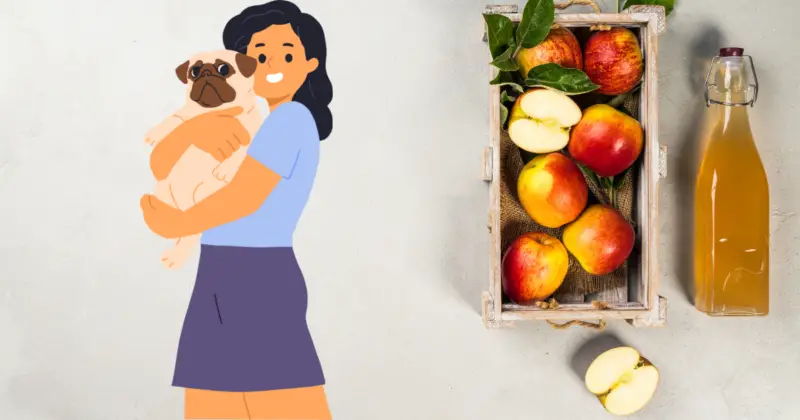
If you’re looking for other safe fruits and snacks to feed your pug, there are plenty of options to choose from. Remember always to introduce new foods gradually and in moderation to avoid stomach upset.
Apples are a great snack for pugs, as they’re low in calories and high in fiber. Just make sure to remove the seeds and core before feeding them to your pug. Strawberries and bananas are also good choices, providing essential vitamins and minerals. Additionally, blueberries are packed with antioxidants that support overall health.
Watermelon can be a delightful treat on a hot day, as it’s hydrating and low in calories. Be sure to remove the seeds and rind before offering it to your pug. Similarly, mango and cantaloupe are both low-calorie options with a high water content that can help keep your pug hydrated and revitalized.
If you prefer to offer your pug vegetables as a snack, consider options like carrots, broccoli, and tomatoes. Carrots are crunchy and full of nutrients, while broccoli is a good source of vitamins K and C. Tomatoes can be a refreshing snack, but be sure to remove their stems and leaves, as these parts can be toxic to dogs.
Some fruits to be cautious with include cherries, avocados, and peaches. Cherries contain pits that can pose a choking hazard or release cyanide, which is toxic to dogs. Avocados contain persin, a substance that can lead to stomach upset in dogs. While peaches can be a tasty treat, their pits also contain cyanide and can be a choking hazard, so it’s essential to thoroughly remove the pit before giving a peach to your pug.
Overall, providing a variety of safe fruits and vegetables as occasional snacks can be a healthy addition to your pug’s diet. Always remember to monitor your pug’s reaction to these new foods and consult your veterinarian if you have any concerns.
Frequently Asked Questions: Can Pugs Eat Oranges
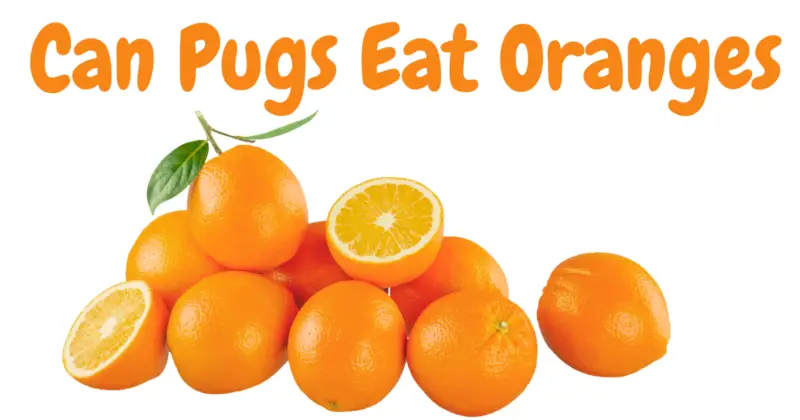
Can pugs consume orange peels?
No, it is not recommended for pugs to consume orange peels. Orange peels can be difficult to digest and may cause gastrointestinal issues in your dog. It is best to remove the peel and offer only the flesh of the orange to your pug.
Are orange seeds safe for pugs?
Orange seeds should be avoided as they can pose a choking hazard or cause intestinal blockage. Additionally, seeds may contain small amounts of cyanide, which can be harmful if ingested in large quantities. Always remove the seeds before offering an orange to your pug.
Can pugs eat mandarin oranges?
Yes, pugs can eat mandarin oranges, as they are similar to regular oranges in terms of nutritional content. Just like regular oranges, remove the peel and seeds before offering a small mandarin orange to your pug.
Is orange juice harmful to dogs?
It is not advisable to offer orange juice to your dog, as it lacks the fiber present in whole oranges and typically contains added sugar. High sugar intake can lead to obesity and other health issues in dogs. Stick to offering small pieces of whole oranges instead.
How much orange can a pug safely eat?
A pug can safely consume a small portion of an orange, about 1 or 2 segments depending on the size of the fruit and your pug’s weight. It is important not to offer too many oranges too often, as they are high in sugar and can cause digestive issues when consumed in excess.
What fruits should dogs avoid?
Certain fruits can be harmful to dogs and should be avoided, including grapes and raisins, which can cause kidney failure. Other fruits to avoid include cherries (due to their pits and cyanide content), avocado (which contains persin, toxic to dogs), and any fruit with pits or large seeds that could pose a choking hazard. Always consult your veterinarian for advice on specific fruits and your dog’s diet.

